What three episodes stand out as your favorites and why?
Carol Pinchefsky: “Balance of Terror” is one of my favorites episodes of television, let alone Star Trek. It’s one hour of mind games, of two equally matched strategists trying to get the jump on each other. And even as Kirk and the Romulan Commander were trying to kill each other, they respected each other. I’m still in awe of the sentence, “In a different reality, I could have called you friend.”
“The Trouble with Tribbles.” It has a planet in need of quadrotriticale grain. It has Klingon tensions. It has spies. If this were a typical episode, it would have been tense and dramatic. But instead, writer David Gerrold went for the funny—and it worked brilliantly. To this day, the thought of someone pelting William Shatner with tribbles makes me laugh. I love every minute of this episode.
For more Tribble hilarity, please run, don’t walk, to the Star Trek: Deep Space Nine episode “Trials and Tribble-ations.”
“Amok Time.” There are two important reasons why I love this episode: I adore the way T’Pring pitted her husband against Kirk so she could have her lover. It was cold and calculating and bitchy as hell. In her, we get to see that Vulcans have emotion—she clearly wanted Stonn—but they use logic to get what they want. It’s no wonder the Romulans are a force to be reckoned with.
More importantly, “Amok Time” was the episode that launched a thousand fanfics. This episode, and Kirk and Spock’s relationship in general, inspired me to write fan fiction (where either Kirk or Spock was my boyfriend, and they would fight to be my boyfriend and kiss me. I was 14, people). Go to fan fiction websites (or gasp, look back through your old fanzines), and you’ll see: “Amok Time” will be there.
This is important, because between until Star Wars came along, fans had very little science fiction to enjoy, so they had to write it themselves. This is why I love being a fan of science fiction: We’re creative as hell.
Rich Handley: Just three? LOL. That’s like asking the parents of octuplets to pick their three favorite children. But, sure, let’s give it a shot…
Most people will probably say “The City on the Edge of Forever,” and I will not buck that trend since it’s one of my three choices. “City” is an extraordinary achievement, and although Harlan Ellison disliked how it turned out (I agree with some of his complaints and disagree with some others), that episode for many (me included) defines the heights to which Star Trek could climb. Excellent acting across the board, wonderful writing (both in Ellison’s original script and in the revised aired version), and an emotional ending that punches you right in the gut. This, I think, is the best episode to show new fans to bring them into the fold.
“Balance of Terror” is another one people would suggest, and again I will go with the flow. Mark Lenard’s Romulan character is one of the show’s most complex and multifaceted antagonists, and even though he and William Shatner never actually share the screen due to the space between vessels, the characters’ onscreen interactions are compelling and thought-provoking. I saw a lot of World War I and II films as a kid (we only had thirteen channels in those days, so whatever was on we ended up watching), so I recognized this episode as a submarine parallel even when my age was in the single digits. The translation to space-based storytelling worked extremely well.
My third choice is one that might not end up on a lot of people’s lists, but it’s definitely on mine: “Requiem for Methuselah.” There’s something about the characters of Flint and Rayna Kapec that pulls me in and makes me care for them. Though the antagonist, Flint is not an evil person by any stretch–in fact, he’s several great people from our history. But his disenfranchisement with mankind and his extreme loneliness have made him bitter, and so it’s easy to empathize with him. As for Rayna, she represents one of Star Trek’s early examples of artificial life striving to be more than just a bunch of wires and circuits, and the actor’s portrayal shows such depth. She set the stage for Data, Lal, and other artificial lifeforms, and her conflicted final seasons are heartbreaking.
Jeff Bond: I think the original series was unique in having an initial “regular episode” (as opposed to a pilot) that fully fleshed out its characters, something I think later iterations of the series struggled with.
Director Joseph Sargent did a brilliant job of bringing out the personalities of Kirk, McCoy and especially Spock, who had just shouted orders in the first two pilots (and did so in the first few scenes of “The Corbomite Maneuver”), but who becomes the measured, reasonable, “logical” Spock we know by the end of the episode. This episode still has some of my favorite character moments in the series–I especially love one moment when McCoy is needling Kirk about the efficiency drills he’s running on the crew and after he asks Kirk what he’s going to do when he gets that extra 6% effort he’s looking for, Kirk takes a piece of vegetable, holds it up and says, “I’m gonna take it, and I’m gonna–” –he’s interrupted but he clearly was about to say he was going to shove it up Bones’ ass. That was daring at the time for ANY network show and Trek had more than one instance of it. This was not a show for kids, really.
I’ve always loved “Amok Time”–it too has some of the best character moments in the series, from Spock’s quietly shocking admission in a turbolift that he considers McCoy to be one of his closest friends to the climactic outburst of emotion when he discovers that he hasn’t killed his best friend, Jim Kirk–that will likely always remain my favorite moment in all of Star Trek. I have numerous other favorite episodes and moments in the series but one that stood out to me when I saw it for the first time was Kirk’s realization, not just that he was wrong, but that he was being a complete asshole, at the end of “Errand of Mercy.” That was something I had never seen on a TV show before–the hero of the show realizing the error of his ways in a wonderfully humiliating, embarrassing moment.
Peter Briggs: Shouty Spock is hilarious in those episodes. It’s jarring to note the continuity issues between episode production order and airing order, when discarded haircuts suddenly change – even sometimes in the same episode!
Steven Thompson: Three favorite episodes? There are only a handful of episodes I don’t care for, really, and most of the rest still show the power they had originally. People forget that the quality of the writing on not just Star Trek but any dramatic American television series from the mid-1950s to maybe the early 1970s was stellar, particularly compared with the often entertaining but more formulaic TV writing that became the norm from the mid-70s on.
Okay, if I have to choose:
“City on the Edge of Forever”—Not a “fun” episode nor a typical one but an almost surprisingly dramatic one which is so often cited as a fan-favorite for a reason. It’s that good. I recently re-read Ellison’s original take and I think the TV version is…don’t tell Harlan…better! What’s that? Harlan’s dead. Ha! Don’t think he’d ever let a little thing like THAT stop him!
“Mirror, Mirror”—An inspiration for my imagination from the first time I saw it and clearly for a thousand other science fiction and comic book writers since.
“The Paradise Syndrome”—Maybe not the best but a longtime favorite and the most recent episode I’ve seen. It literally takes Kirk out of Star Trek only to have Star Trek pull him back in, similar in a way, I suppose, to “City on the Edge…”
Peter Briggs: Earlier this year, totally coincidental to being asked to do this roundtable, I had a bit of a Trek splurge and binge-rewatched all 79 episodes in airing order as I’d never done that before, so I actually have a ranking of all the episodes. It was a “fascinating” watch, as there were two or three episodes I realised I hadn’t seen, including two the BBC had banned on original transmission.
A couple of episodes I really loved (and still do) like “Patterns Of Force” and “Arena” slipped down the chart with my sensibilities changing with age, whereas other episodes I hadn’t thought much of as a kid (“Obsession” and “Charlie X”), bounced up into Top 20. I wasn’t onboard with “City On The Edge Of Forever” this time, and that one dropped considerably. Ellison’s take on Kirk’s character seems “off” to me, and the writing of McCoy’s “Murderers! Assassins!” ravings seems simplistic and tossed-off. For a time travel installment, I like “Tomorrow Is Yesterday” much more.
But to answer the question: my Top Three have never changed all the years I’ve seen the show and all tied in the Number #1 spot, so it’s an easy choice: “The Doomsday Machine”, “Amok Time”, and “Mirror Mirror”. The first satisfies my craving for world-destroying entities (Galactus, the Death Star), whereas the other pair gives us well-realised reverse flipsides to characters we’re used to.
Bob Greenberger: Thank you for giving us three and not a single one. The original series was really at its best from halfway through season one through the first half of season two. It had found its groove, Gene Coon stepped in and added quite a bit of the sparkle, and everyone was going in the same direction. As a result, I think I need to settle on “Errand of Mercy”, “City on the Edge of Forever”, and “The Doomsday Machine”.
“Errand” since it gave us the Klingons and the marvelous John Colicos, but also showed two belligerent races that they are far from alone in the universe and there were even more powerful ones that were truly alien. There’s the surveillance state for Kor and the need for violence from Spock with Kirk being conscious of the issue. Some good dialogue and action mixed with a message.
“City” shows that Trek could be more than sci-fi shoot-em ups. It showed the consequences of meddling with time, it shows Spock’s ingenuity, and the price of command, the hard decisions that need to be made. Edith Keeler proved to be the great love of his life (forget whoever that was we saw in the Ribbon).
“The Doomsday Machine” took our nuclear fears and magnified them. We have Matt Decker as Ahab and Kirk and Scotty as a pair of miracle workers, a wonderful ticking clock, and drama aplenty. William Windom chews the scenery with the best of them.
Gene hated the humor of “Tribbles” and “I, Mudd” but they also stand out as change of pace episodes with terrific guest turns. And of course there’s the brilliant “Mirror Mirror”, “Journey to Babel”, “Amok Time”, “and…
When Star Trek was good it was very, very good. Among the best-written prime time dramas you would find.
John Trimble: Most of the episodes the other folk have cited might be on our lists, but we’re not going to narrow things down for you. I’m not sure where Bob Greenberger got the idea that Gene Roddenberry disliked the humor in “Tribbles” and “I, Mudd he never expressed those sentiments in conversations we had with him.
Ian Spelling: Three… “Devil in the Dark” for all the reasons I mentioned above. But, let me add this: it scared the crap out of me as a kid. “No kill I” freakin’ blew my mind.
Next, I’d go with “Space Seed”. Great episode. Brilliantly staged, stunningly acted, sharp story, and even a little controversial. Plus, two words: Ricardo Montalban.
My third official choice would be “The Trouble with Tribbles”, since it’s just a joy to watch, but I’m going to go with “The Cage”. I just re-screened it recently and it’s so informative to watch what worked, what didn’t, what Roddenberry pushed through and what he was forced to change by NBC. It’s exciting to see different sets and differences within sets that were kept when The Original Series went to series. Spock is there, but not quite Spock. Jeffrey Hunter played a captain that hardly resembled the one William Shatner would portray. Pilots always intrigue me. To have an alternate pilot to one of the most beloved shows in entertainment history? It’s like a historical document. And to see how ingeniously Roddenberry and the writers later built episodes — and reallllly good ones — around “The Cage”? Totally amazing.
Peter Briggs: I love “Devil In The Dark”, too. Remember the Mandala Star Trek Fotonovels? Luckily, that was one of them. Those books were great…they were one of the few pre-VCR ways we had in the 70s of reexperiencing the show
Larry Young: Of course I love all the episodes everyone else does, but I find I have always loved the Star Treks that display 100% maximum cheese the most rewarding and entertaining. I am always here for the ham-handed commentary on religion and media in “Bread and Circuses,” The Wizard of Oz-esque ending to “The Corbomite Maneuver,” but people who know me know I won’t shut up about the road-not-taken of “The Omega Glory.” Oh my god, I love that episode so much. Politics and religion, this time, but effective world-building, earnestness, and a rumination on “garbage in/garbage out” that works to underline it’s hard to make correct decisions based on incomplete data. Just, everything about that one. Men turned into chemicals and uniforms, mass murder off-camera, Spock’s in the Bible, Shatner chewing up the Constitution. It all seems so simultaneously Sixties and timeless. Like all of The Original Series, honestly.
Jeff Bond: I’m glad to see someone else defending “The Omega Glory”, which is one of the most derided episodes and often used as an example of Roddenberry being a poor writer (he very much wanted that story to be one of Trek’s first episodes). All the Constitution stuff at the end is still silly to me but I absolutely love the episode for everything else in it–the discovery of another starship in orbit, the crew of the U.S.S. Exeter reduced to powdered laundry detergent, and especially the powerful presence of Morgan Woodward as Captain Ron Tracy, a rogue starship captain who can not only beat James Kirk in hand-to-hand combat, but gleefully enjoy doing so. Woodward’s speech about the phaser slaughter of thousands of natives on the planet is brilliant writing and acting, giving the episode cinematic production value by conjuring up this epic, horrific imagery in the minds of viewers without having to show it. It’s very much Trek’s Heart of Darkness (and I equally love Woodward’s unhinged performance in season one’s “Dagger of the Mind”–meeting the actor at a convention is one of my favorite memories). And just to dip further into Star Trek cheese, another guilty pleasure of mine is “The Gamesters of Triskelion,” which encapsulates Trek at its pulpy best, with gladiatorial combat, weird alien slaves, gigantic green hairdos and tin foil brassieres, Kirk in S&M gear and pulsating alien brains. I’d buy that for a quatloo! I also agree about “Bread and Circuses,” full of great character moments, sly satire on television, and one of the show’s most infuriating villains.
Bill Cunningham: My personal tastes run towards the first season of Trek where the storytelling was enhanced by Gerald Perry Finnerman’s excellent cinematography which was called upon to reveal the emotional subtext to so many scenes. It was also scarier than subsequent seasons.
-
- “Balance of Terror – Star Trek’s naval battle episode. An exquisite thing made all the more real and terrifying by showing us the face of the enemy (He is us!) and that war always exacts a price (the death of the young crewman who was to marry). The opening scene of the marriage ceremony interrupted by a Red Alert is powerful and immediately sets the stage for the tension to come.
- “Miri” – a child’s fairy tale wish of forever play takes a nasty turn. I understand the metaphor of the planet looking like Earth, but I think it could have been just as powerful without it. In any case, we have a brilliant episode about growing up, Kim Darby fresh from True Grit (or around that period) and Michael J. Pollard whose work here rivals the other terrifying fairy tale he guest-starred in on Lost in Space. We also get to see all those pent up emotions bubbling underneath the surface of everyone’s skin – we just want to be loved, and damn if it won’t kill us all if we can’t have it (“Look at my legs, Captain”).
- “The City on the Edge of Forever” – the first of several love stories for Kirk, but the best one that set the bar higher. Ellison provided a diamond of a story, and D.C. Fontana, Gene L. Coon, et al polished it into a terrific Star Trek episode. One can see the work Ellison did with The Outer Limits influenced his story for Star Trek, and Trek is so much the better for it.
All of my choices seem to crop up in others’ choices as well, so for once I’m not on the outside.
Peter Briggs: I’ll take that role for you…”Miri” is in my bottom four!
Bob Greenberger: Oh, no, “Miri” is far better than the bottom four!
Peter Briggs: Hard disagree, but…hey! Infinite diversity in infinite combinations!
John Kirk: If we are exclusively talking about The Original Series, then my three favourites seem to be on a lot of others as well. So, to add to the consistency of this thread, the three that top my list are:
“Balance of Terror” is the consummate WW2 storyline. It’s got tension, pathos and the type of relationship-building that I mentioned earlier. You get insight into the triumvirate of Kirk, Spock and McCoy. McCoy is the sage counselor who Kirk leans on in times of doubt. We see Spock of two worlds adjusting to the prejudices of his human crewmates and showing himself to rise above their pettiness. Finally, we see Kirk, though young and full of bravado as a tactical genius in combat, even better than his Romulan counterpart. He even shows mercy to his enemy demonstrating another aspect of the heroic ideal military leader.
It’s a classic storyline in a scf-fi setting that also opened the door to a number of Trek features that had ramifications in the Star Trek universe. Romulan/Vulcan re-unification, cloaking technology, and even a little bit of stellar cartography with the location of the Romulan Empire in proximity to the Federation and the presence of the Neutral Zone. It’s such a rich episode with so much to offer.
“The City on the Edge of Forever” is another episode that focuses on the friendship amongst Kirk, Spock and McCoy. In fact, I think it’s this one that really cements the relationship in the show and is an easy touchstone.
Edith Keeler becomes one of those moments lost to time that the duty of command has taken away from Kirk. While Spock provides the intellectual anchor point in reality for Kirk to remind him of the necessity of her death, it’s a tiny sliver of compassion – a reminder of Spock’s own suppressed humanity that shines forth in this most difficult moment. McCoy is the emotional sounding board that expresses fury and anger when Kirk prevents him from saving her. Kirk can’t express those in the moment, so McCoy does it for him.
Also, “The Guardian of Forever “becomes a springboard for other Trek stories: another source of rich storytelling that has shown up in later iterations of Star Trek. One of the hallmarks of my favourite episodes is that they provide for the future of Star Trek.
As a sidenote, I was lucky to read the original screenplay as Harlan Ellison intended in the IDW comic (writers Scott and David Tipton with JK Woodward’s amazing art) and heard some of Ellison’s colourful stories about the creation of this episode!
“Mirror, Mirror” is probably the episode of The Original Series that has spawned the most stories in other iterations of Trek. We saw it emerge in Deep Space Nine, Star Trek: Enterprise, Star Trek: Discovery and will even be seen in The Next Generation in the IDW comic series, The Mirror War. It’s a perennial favourite for many Trek fans but serves to highlight the Utopian nature of Star Trek by contrast. We see how good the prime universe is by the actions of the Mirror Universe counterparts.
I also really like how we see more interaction from the supporting cast of the episode. Uhura and Scotty play crucial roles in this story and the Mirror Universe Sulu and Chkov also get a lot of attention. I can only imagine how much fun George Takeii and Walter Koenig had in portraying the evil versions of their characters.
Peter Briggs: I’d love to write in the Mirror Universe. It’s a lot of fun.
John E. Price: There could be a whole sub-ranking of “Top Three Kirk defeats the Computer” or “Top Three Vietnam Allegories” or “Top Three Spock Gets Emotional Episodes” but overall it’s actually really difficult to rank most of the episodes. Everyone loves “The City on the Edge of Forever” and it’s good, but it suffers from the same issues I have with an episode like “The Inner Light” – objectively both great episodes with some of the strongest acting in the series, but maybe not the best Star Trek, in as much as that means anything.
For me, the best episodes are those that directly engage the struggle I spoke about earlier – humanity fighting to maintain the future they’ve so desperately forged. Episodes like “Arena” and “The Devil in the Dark” place the Enterprise crew against a seemingly obvious villain, only to realize the true enemy is a lack of information and miscommunication. Even then, our heroes still have the choice to play macho man action hero, to kill the enemy, but they choose not to – they put the future of humanity first.
While “The Ultimate Computer” plays on a very basic idea of supercomputer run amok, the nuance in that episode is what makes it brilliant. Kirk’s self-doubt, Spock’s cold admiration, and Wesley’s arrogant schadenfreude all make the episode hum but almost always ignored is that in Star Trek, a show made during the height of the Civil Rights Movement, the smartest man in history Richard Daystrom, is a black man. Not once is that commented on, not once is that drawn out for the audience, not once is that the focal point or prompt for applause. Instead, Daystrom’s burden is that of a grieving father who has lost his son in a needless expedition – a sentiment perhaps all too familiar to fathers in the late 1960s, who themselves might have felt the weight of history slipping past them. The man wants nothing more than a deus ex machina solution, but his own hubris made that impossible. It’s a beautiful episode in its melancholy and exemplifies the Roddenberrian “optimism” that humanity needs to have faith in itself.
(Continue Reading)




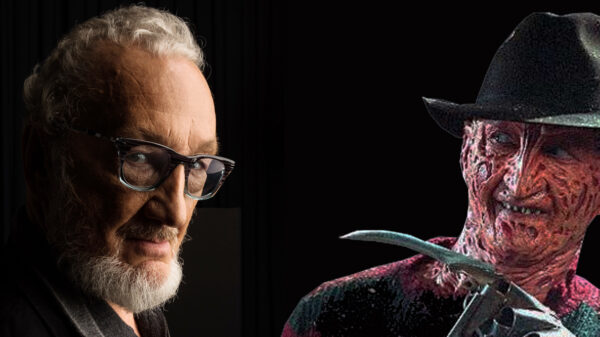
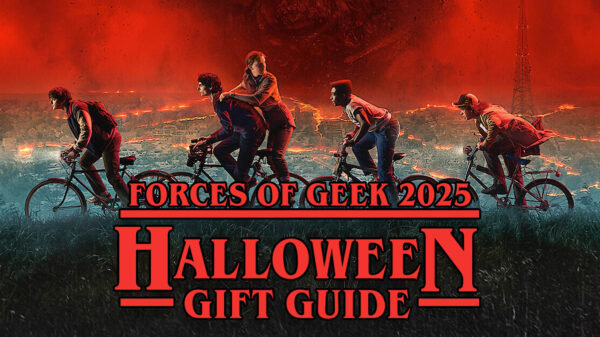
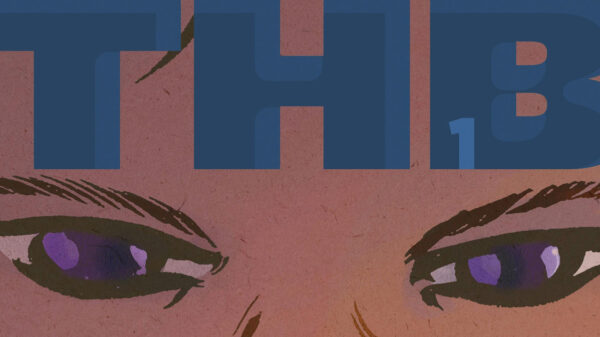

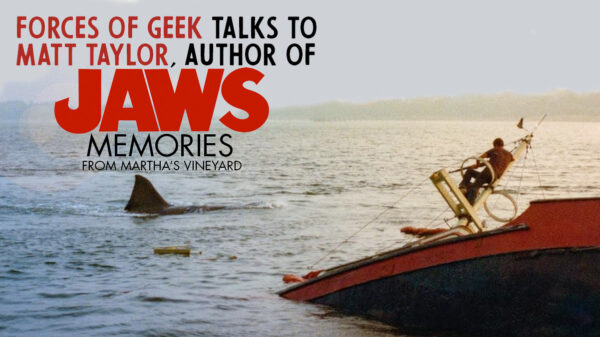
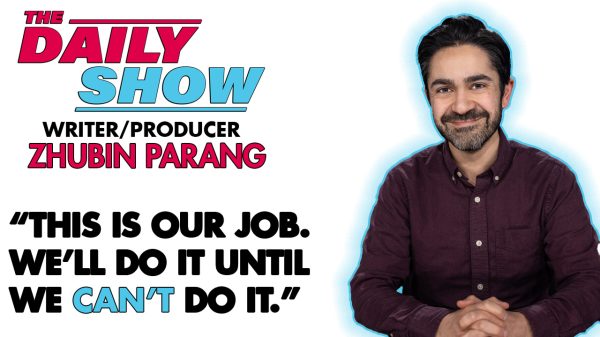
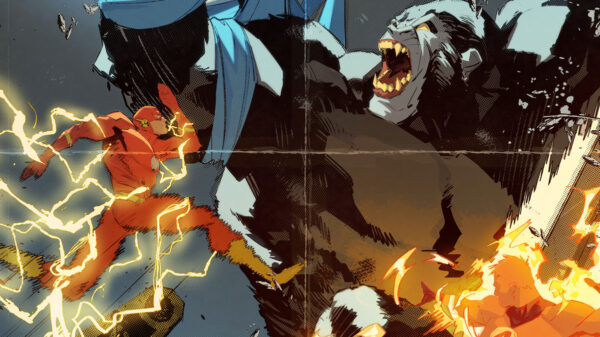
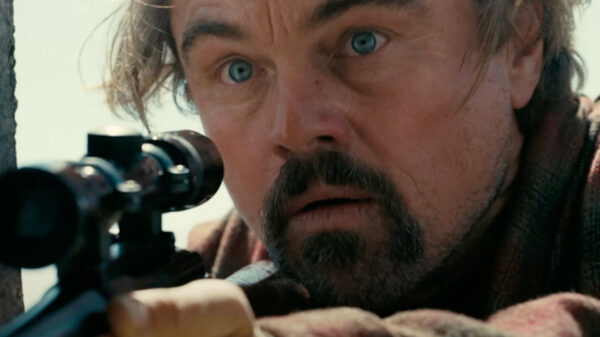
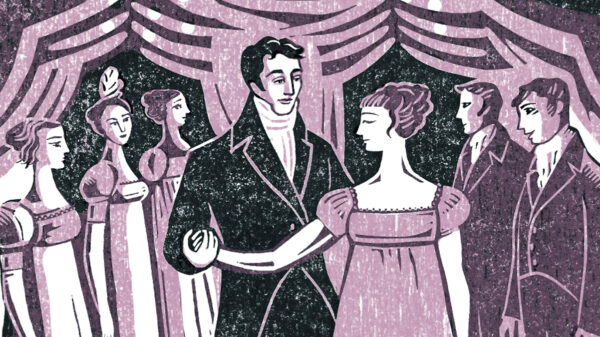
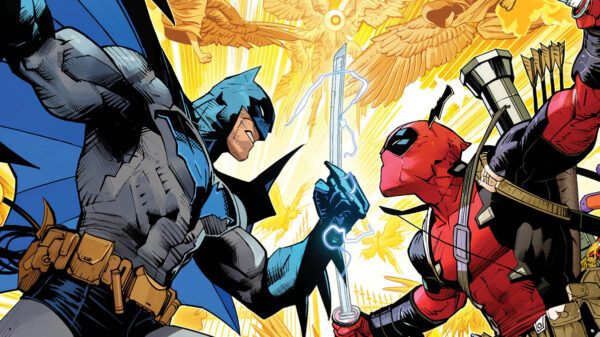
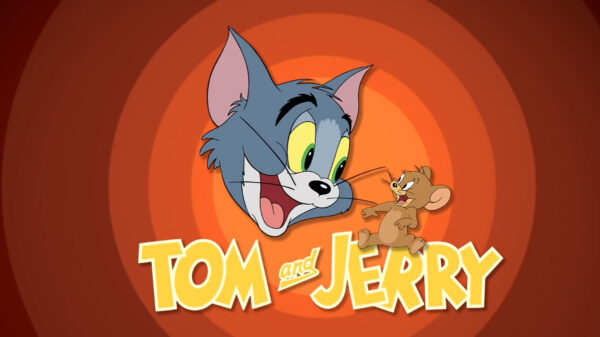



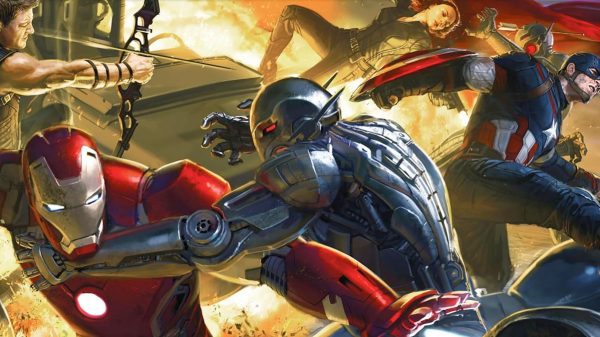

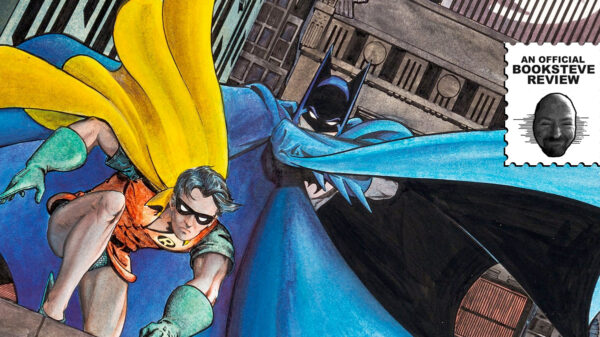
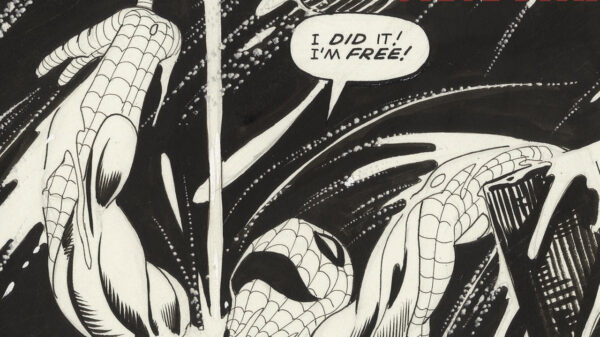
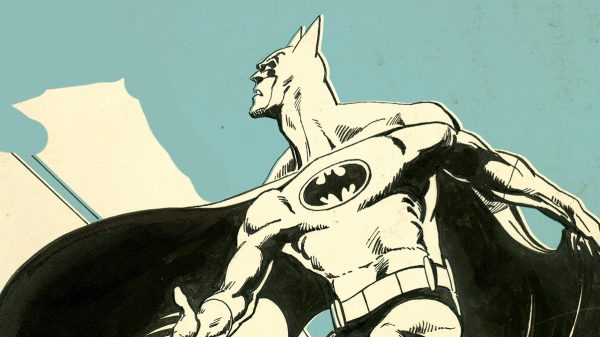

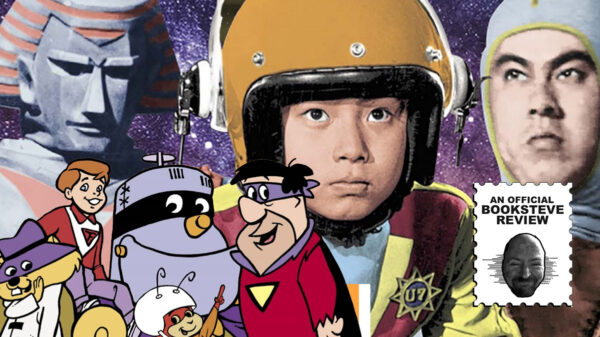
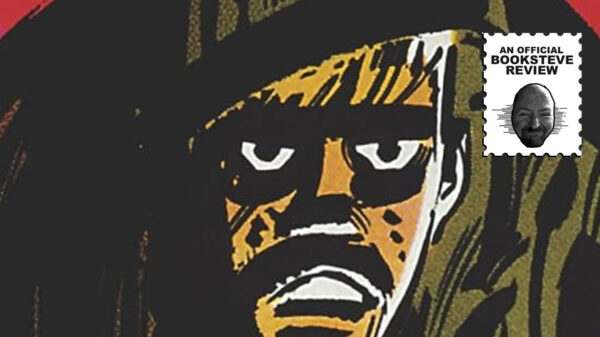
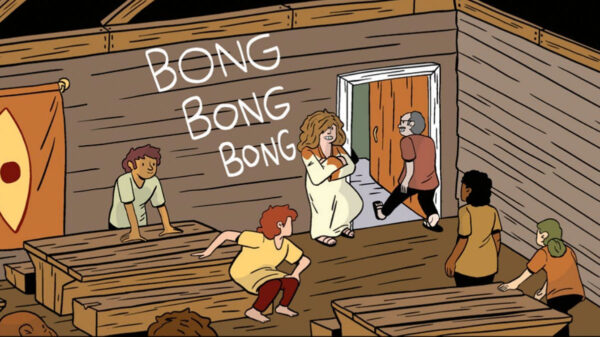
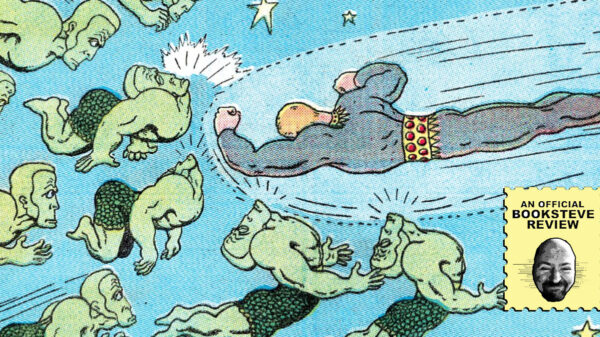
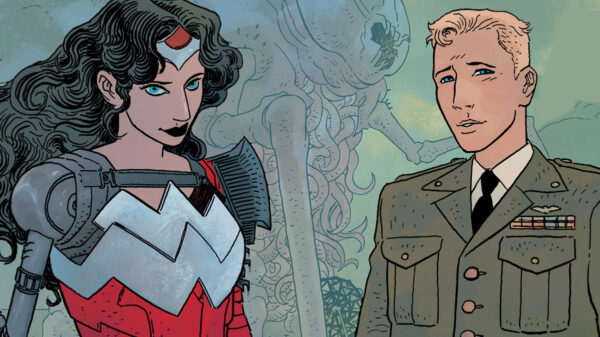









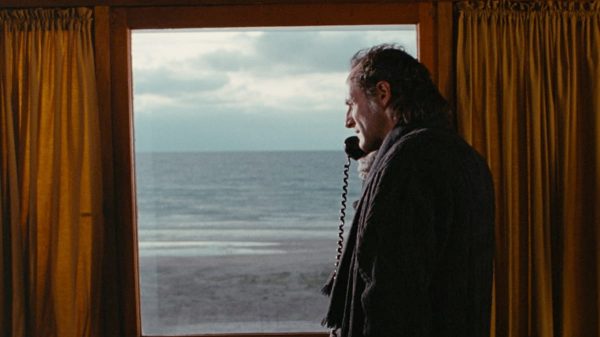
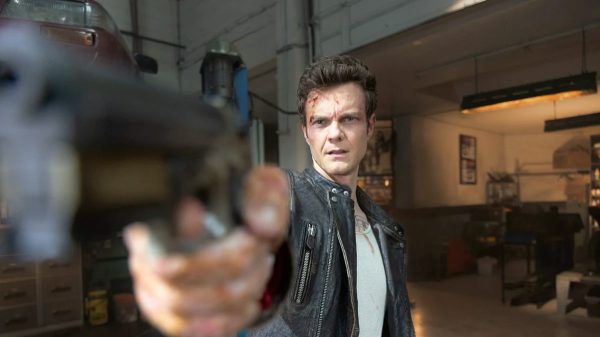
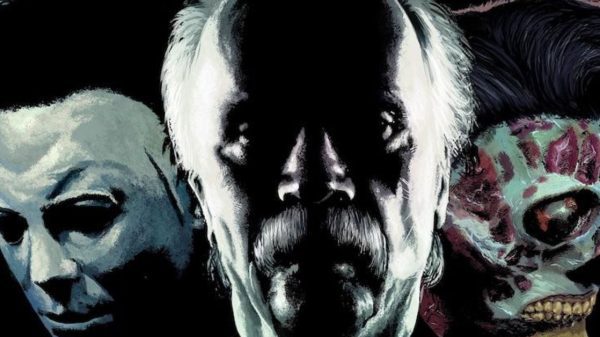
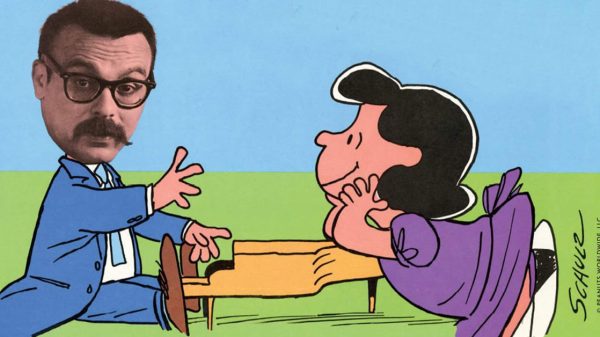
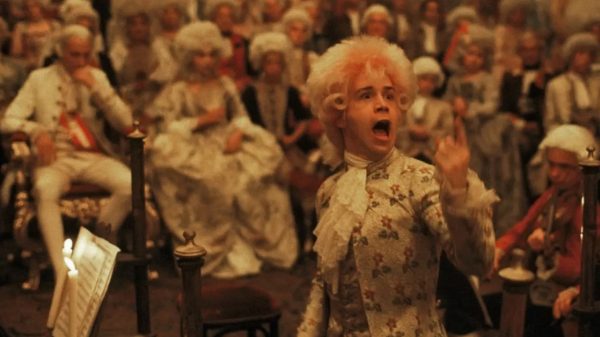











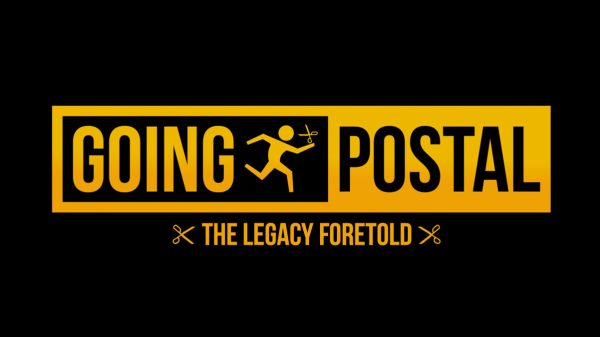
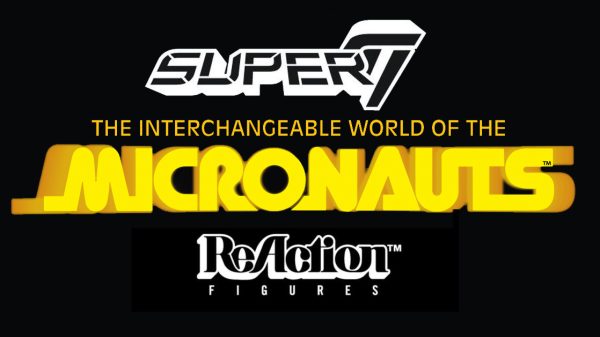
















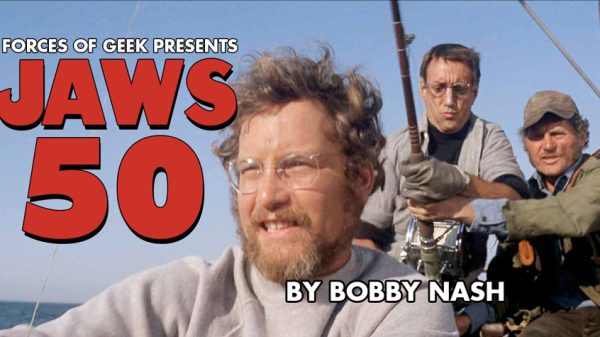









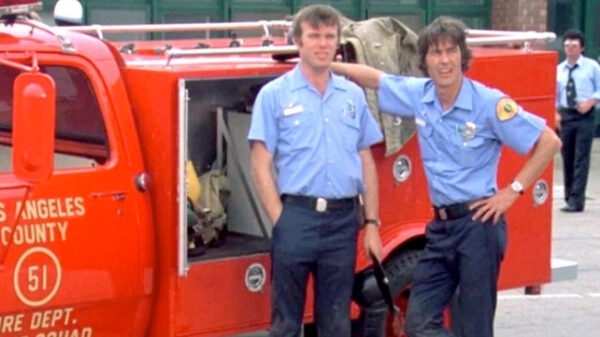
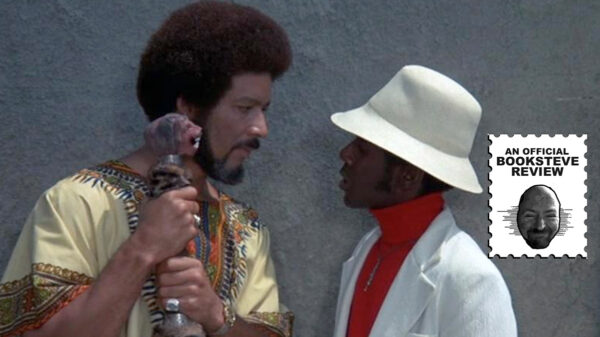
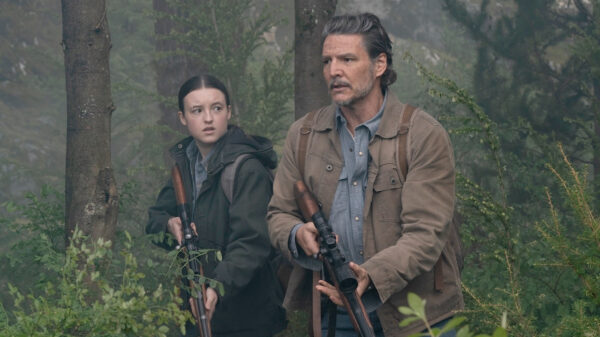




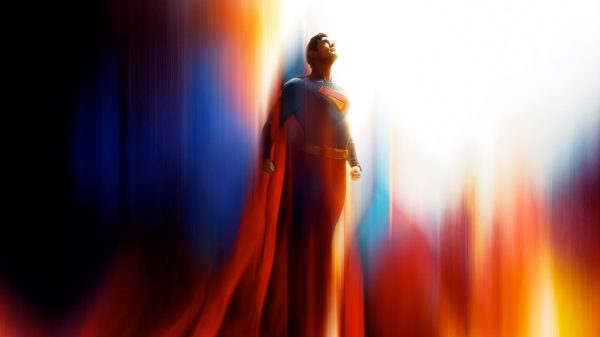
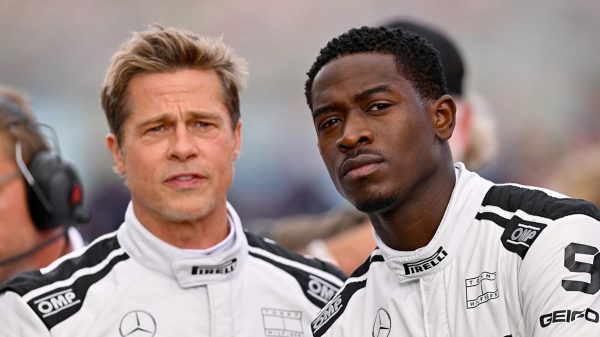
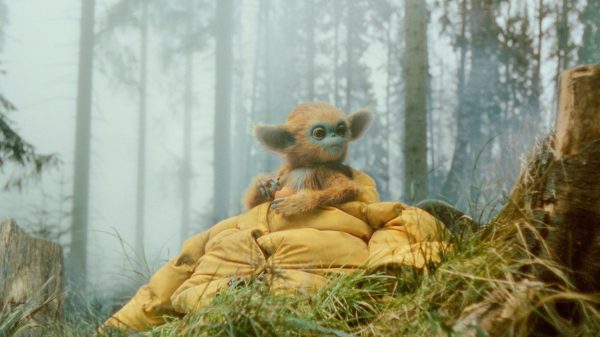



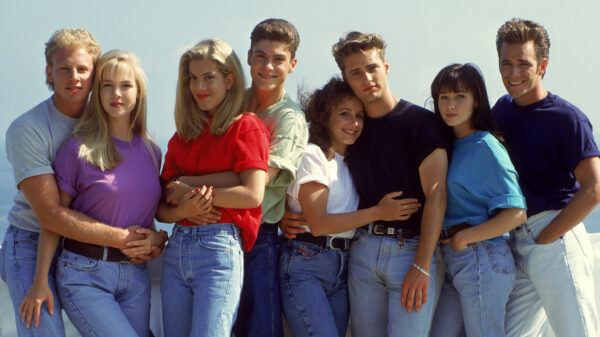
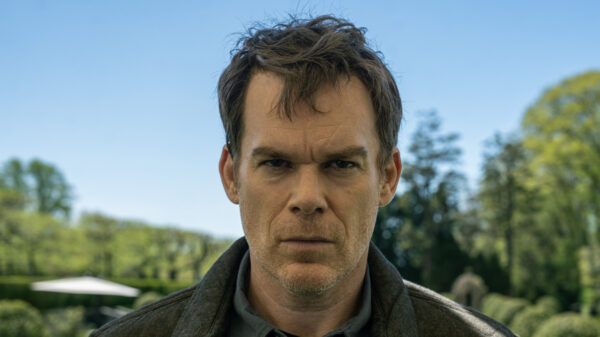
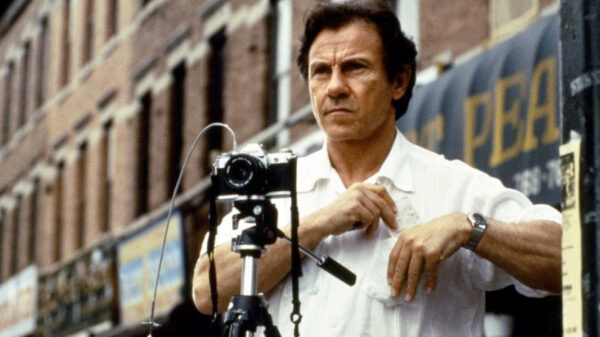
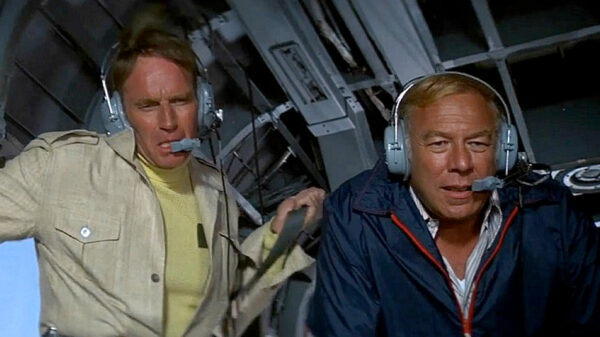
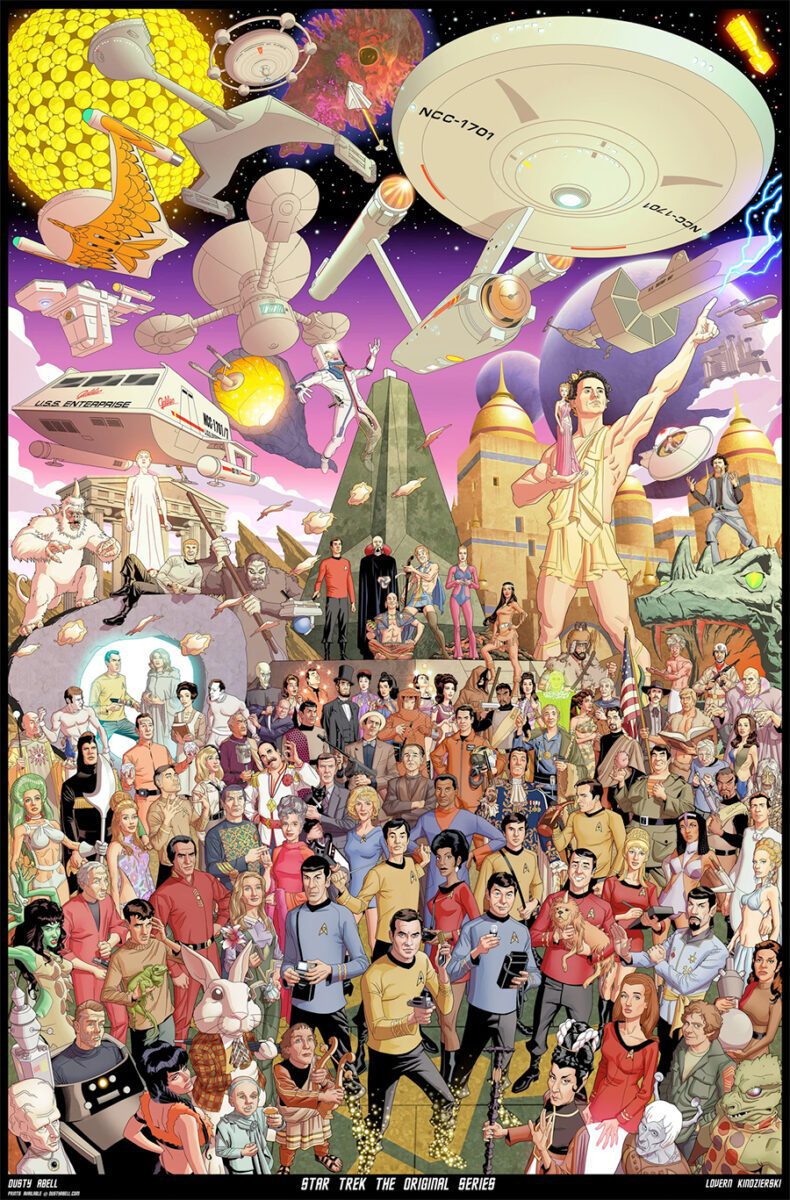
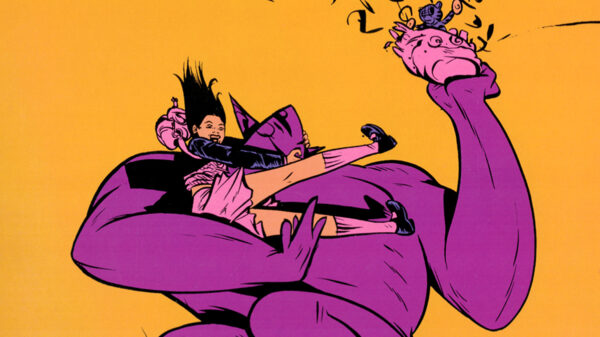
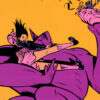
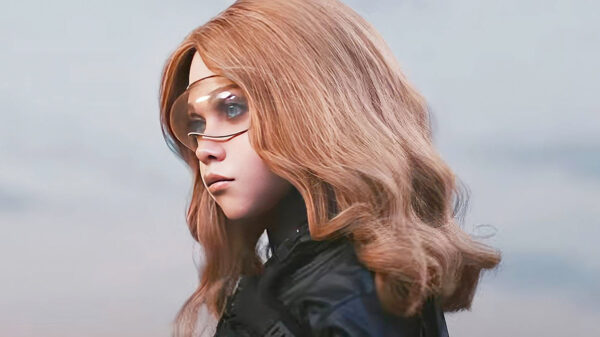

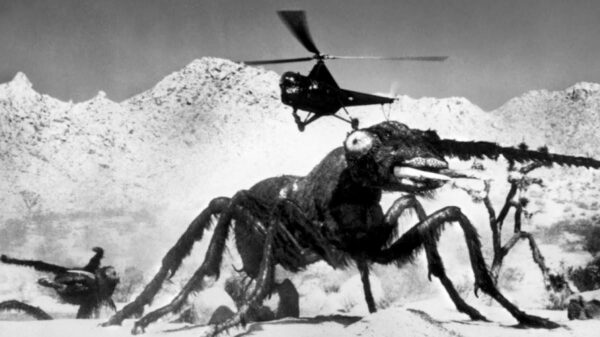
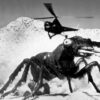
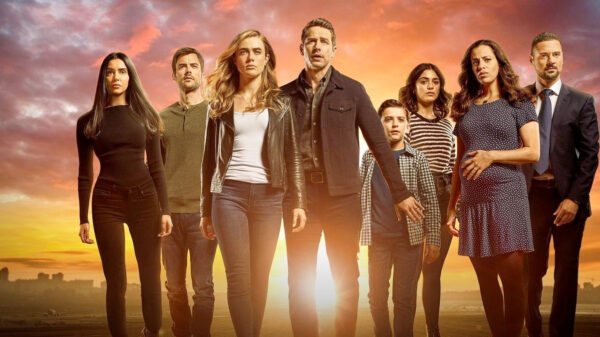

You must be logged in to post a comment Login